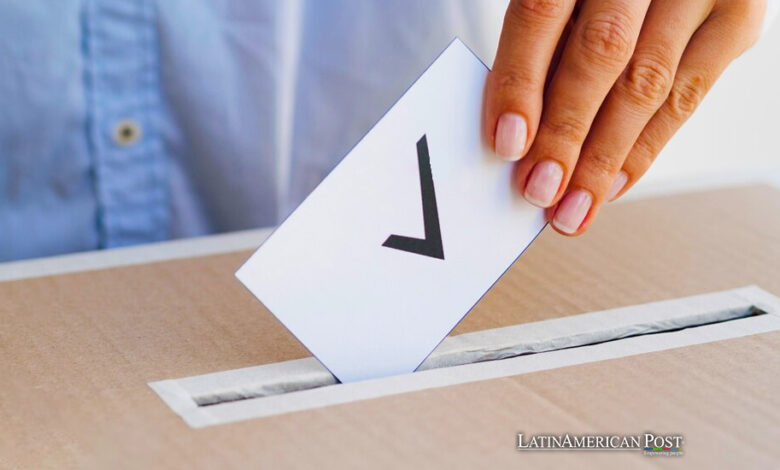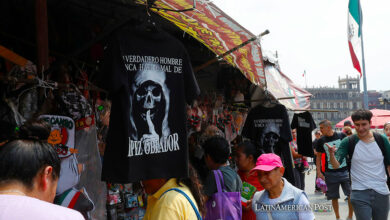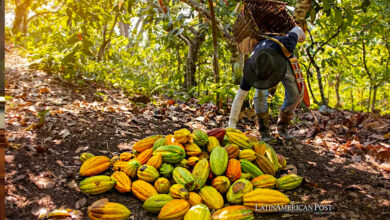Ecuador’s Constitutional Court Filters Referendum Questions

Ecuador’s Constitutional Court validates half of President Daniel Noboa’s proposed referendum questions, aiming to reform security, justice, investment, and labor laws while rejecting others that could increase presidential power.
In a recent development that marks a significant moment in Ecuador’s political landscape, the Constitutional Court has approved ten out of twenty questions proposed by President Daniel Noboa for a national referendum. This move is part of the government’s effort to implement reforms in various sectors, including security, justice, investment, and labor.
Unanimous Decision Highlights Complexity of Reforms
In an extraordinary session, the Court’s unanimous decision underscores the complexity and contentious nature of the proposed reforms. The Court’s approval signifies a careful balancing act, ensuring the proposals align with constitutional mandates while addressing pressing national issues.
Among the accepted questions is one that suggests allowing the Armed Forces to control the entry of weapons and explosives around prisons – a measure reflecting the government’s focus on enhancing security. The Court also approved questions aimed at increasing penalties for serious crimes, including terrorism, drug trafficking, organized crime, murder, human trafficking, kidnapping, money laundering, and illegal mining.
Other approved questions include criminalizing the possession of weapons and ammunition exclusive to the National Police or Armed Forces and immediately allocating confiscated weapons to these forces. Additionally, a proposal to expropriate properties obtained illicitly or unjustifiably by simplifying the procedure under the Organic Law of Extinction of Domain received the green light.
However, the Court rejected several questions that could have expanded presidential powers. For instance, the Court did not approve the question proposing the creation of national interest zones to revoke mining concessions to combat illegal mining. Other rejected questions include allowing the President to pardon police, military, and prison agents accused of crimes related to the use of force against crime suspects and proposals for police and military personnel to be tried by their respective tribunals for alleged crimes committed during duty.
Significant Rejected Proposals
One of the significant rejected proposals was to evaluate judges based on audits of their financial statements and the president’s ability to classify projects as urgent beyond economic matters.
The Court will further evaluate four questions, including the extradition of Ecuadorians, recognizing international arbitration to promote foreign investment, regulating temporary and hourly contracts, and establishing specialized constitutional judiciaries.
The referendum, announced by Noboa following his presidential election victory last year, is set to be held early in his term, which began in November 2023. Most questions are framed within the context of the “internal armed conflict” that Noboa declared against organized crime following a surge in violent attacks attributed to these groups, which the government now considers terrorist and non-state belligerent actors.
These criminal bands, primarily engaged in drug trafficking, are considered responsible for the exponential increase in homicides in Ecuador, making it one of the most violent countries globally, with 45 intentional homicides per 100,000 inhabitants in 2023.
The Constitutional Court’s decision reflects its role in safeguarding the Constitution. It illustrates Ecuador’s challenges in addressing complex issues like organized crime and public safety. The approved questions indicate a societal demand for stricter security measures and legal reforms. In contrast, the rejected ones highlight concerns about preserving democratic checks and balances.
Pivotal Moment and Public Opinion
The referendum represents a pivotal moment in Ecuador’s efforts to combat rising violence and instability. It allows the public to voice their opinion on crucial national issues. However, the Court’s decision to reject specific questions also signals an exemplary approach to prevent the potential overreach of presidential powers and ensure that constitutional integrity is maintained.
Also read: Ecuador’s Major Cocaine Bust is A Blow to Organized Crime
In conclusion, the Court’s filtering of referendum questions is a crucial step in Ecuador’s journey toward addressing its internal security challenges and reforming its legal and political framework. As the country prepares for the referendum, the outcomes of these questions will likely shape Ecuador’s future policies and approach to governance, security, and justice. The Court’s role in this process underscores the importance of judicial oversight in maintaining the balance between necessary reforms and constitutional safeguards.





